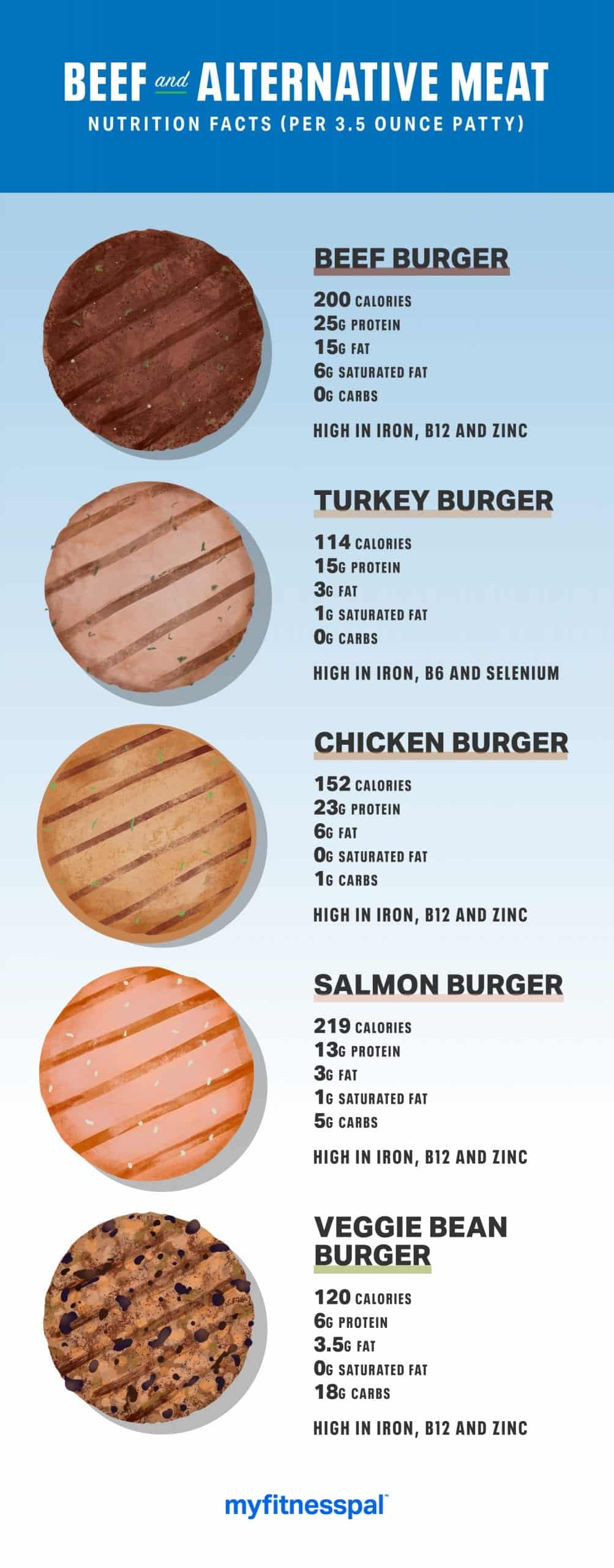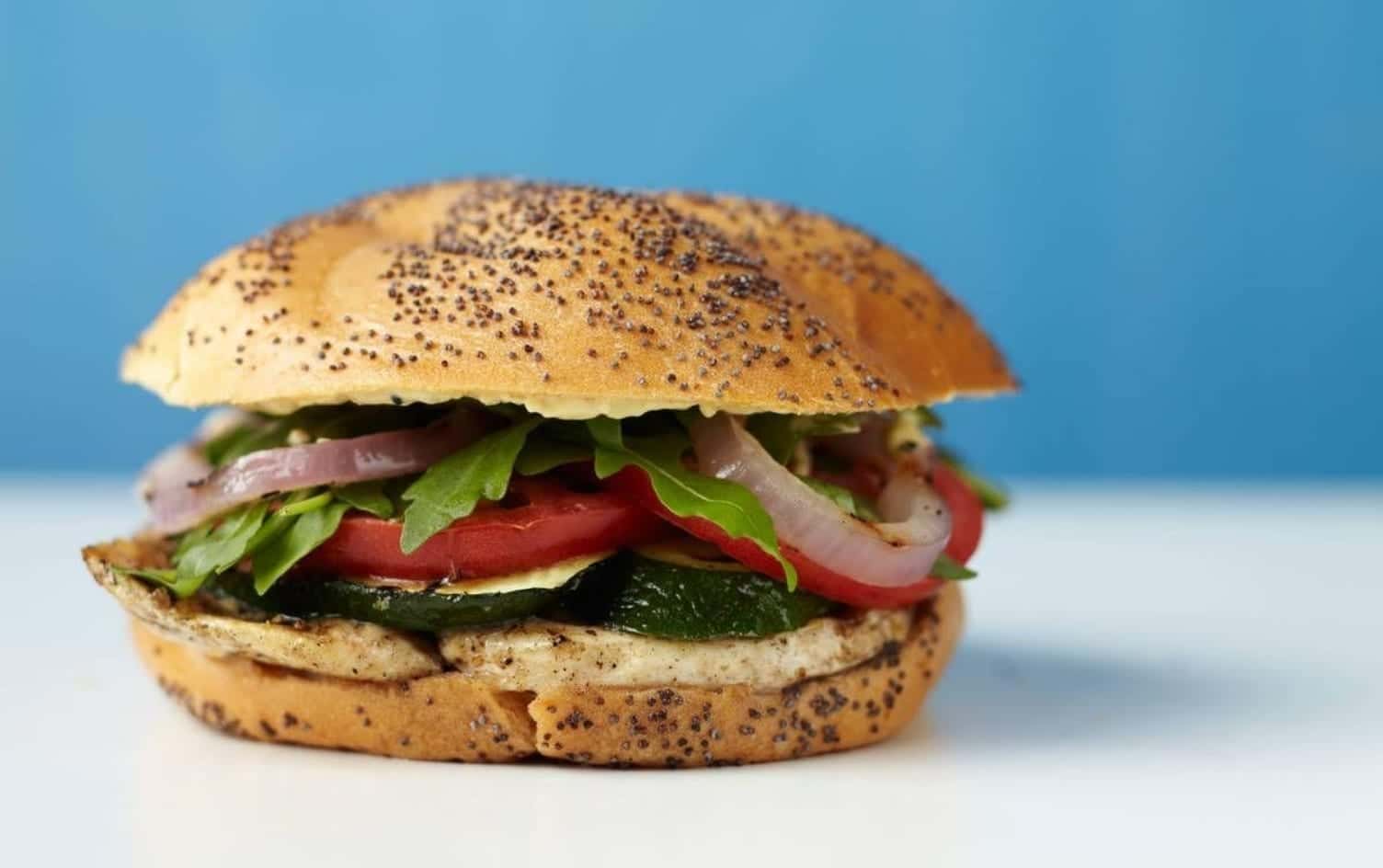Burgers are a classic summer cookout food, although their high-calorie, fast-food reputation causes many people to avoid them. The good news is burgers can be part of a healthy, well-balanced diet, especially when you try a variety of lean protein sources and nutritious add-ons.
One reason burgers get labeled “unhealthy” is because we often think of them as a fast-food option where they’re typically served with french fries and soda. These are notably lacking in nutrients, and while it might be slightly different today, it’s still not as common for burgers to be served with vegetables, water or other more health-promoting foods. What’s more, the introduction of double and even triple cheeseburgers goes beyond healthy portion sizes. Some research has also linked red meat and saturated fat to certain cancers and chronic diseases like heart disease and high cholesterol.
Hamburger nutrition varies based on size and how it’s eaten (think bun, condiments, cheese, etc.) Burgers can be a great source of protein and vitamins and minerals such as iron, B12 and zinc, which aids DNA synthesis and supports the immune system.
Depending on the leanness of the burger, some hamburgers may be higher in saturated fat than others, and if cholesterol is a concern, opting for leaner options (e.g., >90%) is a good idea. Adding a bun to a burger can add carbohydrates and fiber, as well as around 150 calories, and cheese and condiments may vary a bit depending on preference.
Nutrition-wise, protein content is similar in turkey, chicken or salmon burgers when compared to a beef burger of similar size. Turkey and chicken burgers may be slightly leaner depending on what type is used (e.g., 85% or 90%), and salmon burgers are higher in heart-healthy omega-3 fatty acids. Veggie burgers made with grains, beans and various vegetables may be slightly lower in protein compared with their animal counterparts, but higher in fiber and carbohydrates.
Other alternative-meat burgers, like the Impossible Burger, consist of various plant proteins like pea, rice and bean, and though slightly more processed, they add another option for those trying to add more plant-based meals to their diet.

It’s helpful to deconstruct your burger to build a healthy and satisfying meal. Think about your protein source, where and how you’re going to get vegetables into the meal, and how you can add an additional fiber or complex carbohydrate source. A little fat, from a thin slice of cheese or avocado, can also enhance flavor and give your burger more satiating staying power. For example, if you’re cooking at home, try choosing a quality protein, like grass-fed beef or bison, and a whole-grain or sprouted-grain bun for a fiber and complex carb boost. Veggies can still be a mainstay in a burger meal, like fresh tomato, greens and cucumber on top, along with sides like grilled asparagus, squash and peppers or even baked sweet potato fries.
Depending on your hunger level, you may want to make your burger meal a bit less filling by using only half the bun (“open-faced”) or placing it over a bed of greens, or more filling by adding some cheese or avocado. Similar hacks can be made at restaurants if a burger is what sounds good to you.
Since condiments like ketchup and barbecue sauce can be high in added sugar, be mindful when adding them to your burger. You can also try other flavorful condiments like pickles or gut-friendly pickled onions.
Burgers in general can be a part of a healthy, plant-forward diet, even from fast-food restaurants once in a while. Similar to other foods such as pasta, bagels and ice cream, burgers do not have to be completely off-limits. As always, it’s important to look at the big picture of your diet as a whole, rather than putting any single food in a vacuum. Variety is key when it comes to eating a healthy diet.
Discover hundreds of healthy recipes — from high protein to low carb — via “Recipe Discovery” in the MyFitnessPal app. Save your favorites and log directly to your diary.




